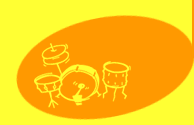As the 10th anniversary
of George's death approaches, and “Living in the Material World”, the Martin Scorsese documentary about his life,
about to be aired, I have been looking back at the last 10 years of my own life. Like standing at the window of a moving train,
I have watched each year as a fleeting reflection in a foreign landscape. I did not want to be on board but had no choice,
nor was I sure if there was even a destination.
In 2001, when it became evident that
George was not going to live, a friend said to him, "this will be the most exciting chapter of your life." The usual dialogue
surrounding a terminal illness is so grim that even the best platitudes fall flat; but at that moment, after all the negative
medical certainties, those particular words were inspirational. After years of speculation about the moment of death, we knew
the spectre of disembodiment was actually imminent.
"To die will be an awfully big adventure,"
wrote JM Barrie. In fact, death is such a big adventure it profoundly alters the lives of all those attached to the departing
soul. When the time for George came, that momentarily open door to the infinite caught my sleeve then slammed shut, leaving
behind the fabric of my being in jagged shreds.
Tragedy is much more of an adventure
than joy. I am not saying joy is over-rated. But happiness is fleeting; it exists in the present. Tragedy casts a long and
persistent shadow with the power to dim even the most perfect moment. It also has the potential to follow us to the end. We
don't stop to analyze happiness but when grief and strife occur we recount the events leading up to it over and over. It wakes
us from our sleep as we try to figure out how and where it all went wrong. Of course, with death, the question is more of
a 'why'? But for me, the question was, "what is it I am meant to do now?" The script was changed, as George said when John
Lennon was killed: "That's not how the script goes. It was like someone tore out that page and stuck a new one in." My movie
changed too.
After George died, I was certain
the usual tower of mail on the kitchen chair would dwindle, the house would be tidy and the sofas would seat people rather
than guitars. None of that happened. In fact, it was quite the opposite.
Maybe it was the momentum of his
hectic life, in addition to my need to keep busy, but my own life began to pick up speed. Thankfully George and I didn't spend
much time looking back. I mean, we weren't making scrapbooks. We were steaming ahead. Thirty years of stuffing letters, tapes
and film in drawers turned the house into one enormous discombobulated archive. Having an over-developed sense of duty, and
the recent deep awareness of my own mortality, I began to organize the remnants and treasures of the life George lived. It
seemed so unfair to leave this task to my son and it was important to me that things be in order. It was also an obvious way
of staying close to life as I knew it, not being ready to 'move on' -- as they say, a term I have come to detest.
Half way through the treasure hunt
it became even more obvious how rich a life George led. From the bin bag of reel-to-reel tapes I listened to George working
out his first song, "Don't Bother Me" and Ravi Shankar giving George his first sitar lesson in 1966.
There were traces of him everywhere;
chord sequences and tablatures written out, notes and silly drawings but also deeper reminders, one written on a scrap from
the Bel-Air Hotel, "When you strip it all away, there is only God."
And I have been stripping it away,
from the past, as well as streamlining the present. Isn't it what we of a certain age all desire now? To simplify our lives,
to get rid of some of the 'stuff' we worked so hard to accumulate so we don't spend the rest of our lives as slaves to our
material world? Through work and the process of producing this film I have discovered new skills, broader perspectives, new
interests and above all, I cemented old friendships while nurturing new ones. I worked hard at it all and the results pulled
me out from under the cool shadow of sadness. I admit I have had a pretty amazing 10 years. It goes without saying, but I'll
say it anyway, that not in a million years would I have made that trade. I have to thank George for my life with him and oddly
enough, for with my life without him.



